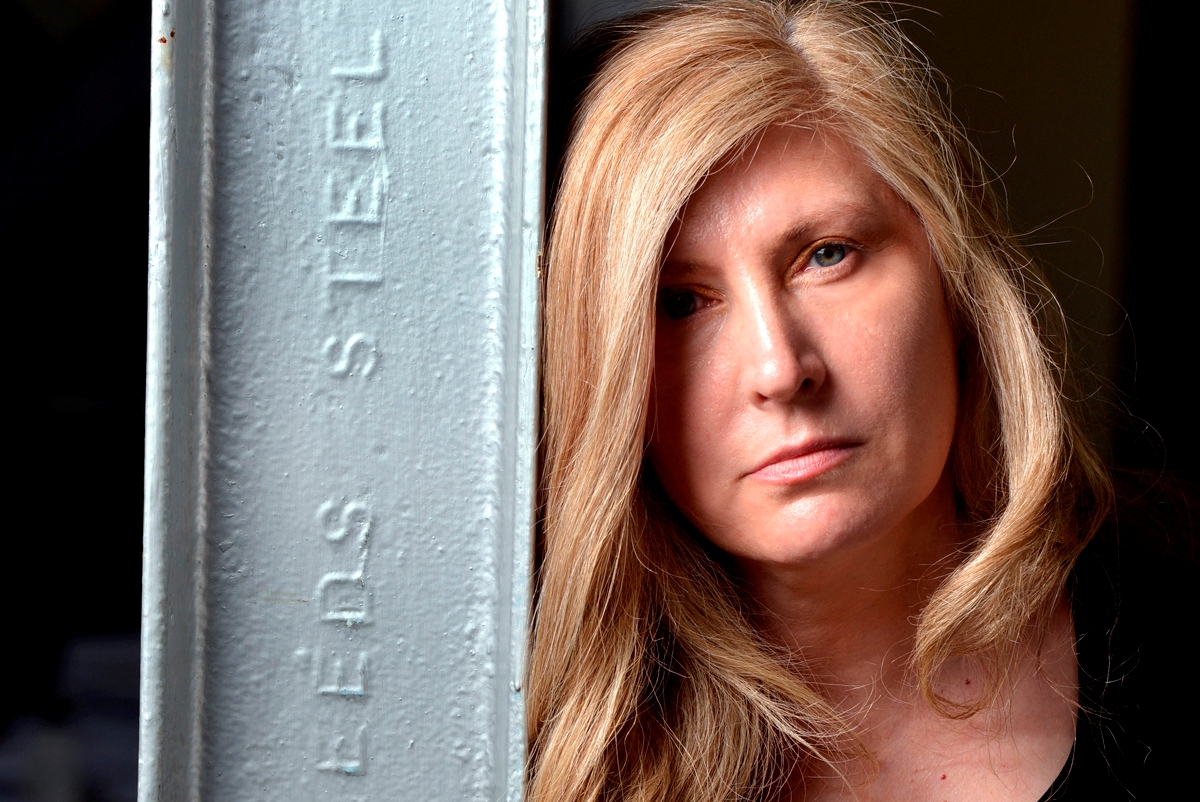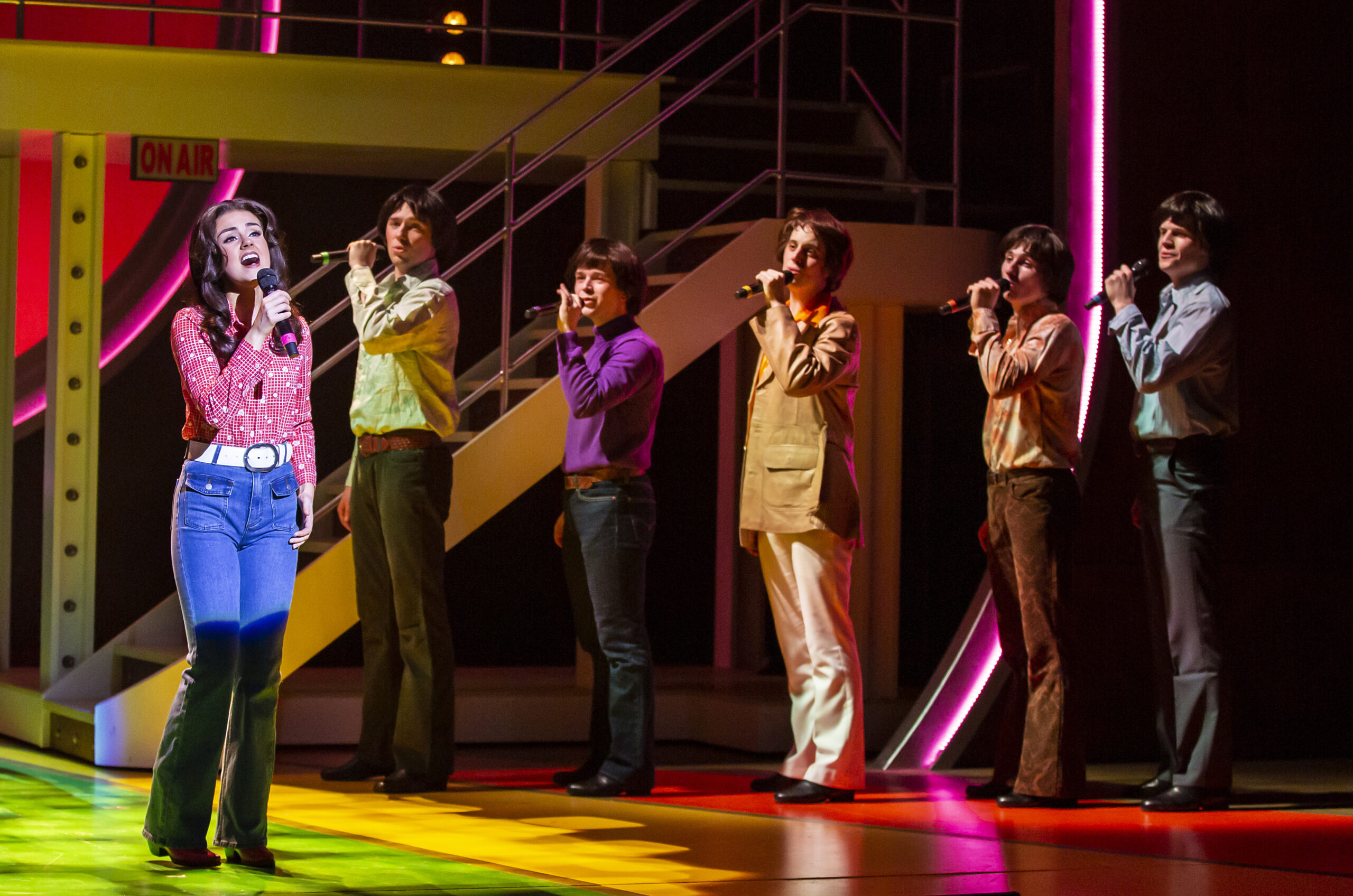It’s a crisp, sunny autumnal morning in the canteen of Leeds’ West Yorkshire Playhouse and Alice Nutter is doing her best not to be angry. Yes, she might be the former lead singer of Chumbawamba, the anarcho-punk band whose 1997 single Tubthumping sold millions around the world, yes her second career as a writer has seen her pen critically acclaimed episodes of BBC’s The Street and The Accused and, yes, her imminent return to theatre with My Generation is going “brilliantly” but… BUT…over the Pennines in Manchester, the Tories have gathered.
“Every time I listen to the radio in the morning one of them’s on there from the Conference saying something horrendous that makes me so angry,” she says ruefully. “Today, George Osborne came on Radio 4 and by the time I got out of the car I was seething. I mean, we poured a bucket of ice water over John Prescott [at the Brit Awards in 1998] but, well, listening to George Osborne that’s something else. I actually thought if you let me near that bastard, I wouldn’t be able to guarantee I wouldn’t go for him.”
She laughs again, seemingly bemused by her own ire, and adds: “I’m making myself seem like I’m more black and white than I am. The play’s not angry in that way. I don’t write like that. People aren’t interested. I’m not interested. That’s not going to stretch me as a writer. A writer’s job is to explore the complexity of human nature, not say ‘if we were all like this we’d be all right’.”
The new play, My Generation, set over four decades from the early ’70s until the present day, examines life and politics in the UK from the point of view of the inhabitants of a Leeds commune.
“It’s four separate stories, but the spine of the piece is the actual family rather than one character,” explains Nutter. “Think about Our Friends In The North – about the journey of parliamentary politics, that’s what it is. It’s the radical left, really, but told through one family against the greater arc of what actually happened in Britain. I’ve not tried to put everything in because I wouldn’t be telling a story. I’ve picked a story per decade, but said something bigger about that decade.”
The first story deals with radical feminism against the backdrop of the Yorkshire Ripper murders.
“I remember that time, the fear that permeated everything and made you look at the world askew. If you don’t know who it is then it could be anyone. But also it’s about girl gangs. The Ripper’s the cloud over it but it’s really about how women reacted to that. It distorted feminism but in another way, it was necessary. You’ve got to go too far, get a bit too extreme, to come back.”
Nutter, resolutely defiant as ever, isn’t against a spot of extreme behaviour.
“If you’re not extreme then you don’t get anything. We wouldn’t have a Health Service if soldiers hadn’t come home, armed, after the Second World War. The government gave us the National Health Service because people truly believed they had been fighting for something better and if they didn’t get it there was going to be a massive uprising.”
The second phase of the play deals with the miners’ strike which, Nutter believes – not without grounds – all but annihilated the radical left.
 “We just weren’t prepared,” she says. “It didn’t seem feasible, the actual level of duplicity and dirty tricks Margaret Thatcher and the others were willing to employ and how far they were willing to go – we could hardly grasp it at first. But I remember it dawning on us and we realised if they won the miners’ strike then they’ll come for everybody else. They’d decided to set up a domino effect. Thatcher was already in touch with Murdoch that they were going to do the print unions next and once you’ve got the papers…”
“We just weren’t prepared,” she says. “It didn’t seem feasible, the actual level of duplicity and dirty tricks Margaret Thatcher and the others were willing to employ and how far they were willing to go – we could hardly grasp it at first. But I remember it dawning on us and we realised if they won the miners’ strike then they’ll come for everybody else. They’d decided to set up a domino effect. Thatcher was already in touch with Murdoch that they were going to do the print unions next and once you’ve got the papers…”
Nutter, a self-confessed optimist – “I’m a pretty hopeful person. I usually think the glass is three-quarters full when actually it’s only got an inch in it” – believes the power of the newspapers is all but over.
“It’s a different world now – they can’t control the media in the same way. They don’t have a monopoly on it anymore. The internet’s shaken everything up. And people will always fight for freedom – it’s an instinct.”
The third story of My Generation looks at how that instinct, in the wake of the neo-liberal victory, sought freedom through free festivals and rave culture, while the fourth brings it bang up to date.
“It’s about how things are now that the bubble’s burst,” says Nutter. “What happens when you embrace that credit culture, that ‘I’m all right Jack’ attitude, and it all collapses under you.”
For the play, Nutter draws heavily on her own life. Born and bred in Burnley, she upped sticks to Leeds in 1982, at the age of 20, and moved into a squat. When asked why, she has a simple one-word answer:
“Punk.”
As with thousands of young people around the Western World, punk exposed Nutter to new ideas and awakened her to the possibilities outside of the narrow confines of her birth.
“This is why I think youth culture can be transformative in a lot of ways. Punk made me realise I could become whatever I wanted to be. I’m from a respectable working class background. Not left-wing but conservative.”
She must have been a worry…
“Yeah, I was,” Nutter chuckles. “My mum was brilliant. She was a strong, intelligent woman and I think she approved of what I was doing, I think, but my dad was an absolute nightmare. He was nearly 50 when I was born so he had all these Edwardian attitudes. He was born on the same street as he died on. My entire extended family lived on that street and it was attached to the mill where everybody worked. My granddad went off to World War One from that street and my dad did the same for World War Two. I lived on that street until I left Burnley to come to Leeds.”
Soon after arriving at the commune, Chumbawamba was formed and Nutter’s life was changed forever. The band split amicably in 2004 (Harry Hamer, Chumbawamba’s drummer, provides music for My Generation) and Nutter decided to pursue a career as a writer. To say it went well is an understatement. Within a year of her first play at the West Yorkshire Playhouse, her scripted TV episodes were airing on BBC1. For this success she is quick to acknowledge legendary script-writer Jimmy McGovern.
“Jimmy’s a lovely guy,” she says. “I think he’s mentored me, you know. I’ve worked with him a lot since. I think we’re a bit alike and the things I believe in struck a chord with him. I think that’s the reason he keeps bringing me back to work with him.”
How much has her TV work influenced how she’s approached to writing for the theatre again?
“Probably too much,” she admits. “But I’m clawing it back. I think the next thing I write for theatre I’m going to set it in one place. I was thinking of putting it in a submarine or somewhere where you cannot get out. But this play is very theatrical – there’s a live band on stage, lots of singing and dancing and, you know, it’s funny.”
And, crucially for Nutter, the play’s large cast includes a lot of youngsters.
 “They’re great kids, all of them,” she coos. “And it’s important we think about their generation. There was a breakthrough in the ’60s where people could transform their lives and think things were going to be better for their kids. And we’ve gone back. This is the generation where we think life is going to be worse for our kids and it is. They can’t be what they want to be. At school at the moment they’re giving them career advice at 11. They’re talking about no welfare 18-25. It really is back to 1834 and the Poor Law. The parallels are unbelievable. There are no options for our kids and the class system is stronger than it’s ever been. We’re going to go back to people dying at 40. We’ve got TB developing again.”
“They’re great kids, all of them,” she coos. “And it’s important we think about their generation. There was a breakthrough in the ’60s where people could transform their lives and think things were going to be better for their kids. And we’ve gone back. This is the generation where we think life is going to be worse for our kids and it is. They can’t be what they want to be. At school at the moment they’re giving them career advice at 11. They’re talking about no welfare 18-25. It really is back to 1834 and the Poor Law. The parallels are unbelievable. There are no options for our kids and the class system is stronger than it’s ever been. We’re going to go back to people dying at 40. We’ve got TB developing again.”
She stops herself and shakes her head, laughing.
“Argh! I’ve got to stop. I’m sounding really miserable and this is not what the play’s about. It’s because of this bloody Tory Party Conference.”
And with that, the interview draws to a close. Rehearsals beckon.
“They’re doing a dance routine that I really want to see,” Nutter says, adding, “Remember: this play isn’t miserable. There’s a lot of singing and dancing. And jokes. Loads of jokes.”
More info: My Generation runs at the West Yorkshire Playhouse until October 26, 2013. Visit http://www.wyp.org.uk/what%27s-on/2013/my-generation/ for more details.
East Street Arts are curating an exhibition of photographs featuring images from an archive (stored in attic boxes since 1991) by Andrew Bannerman-Bayles and Andrew Medcalf – running at West Yorkshire Playhouse’s Newlyn Gallery & The Reliance to coincide with Nutter’s new play. See here for details: http://eaststreetarts.org.uk/whats-on/exhibition-my-generation/











